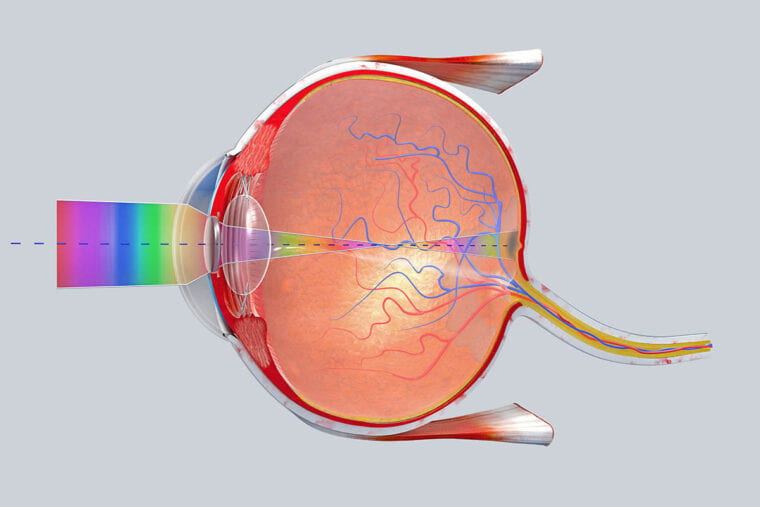Around the world, around 44 million individuals are living with Alzheimer’s disease (AD) or a related type of dementia. Despite the fact that 82 percent of seniors in the United States state it’s essential to have their thinking or memory checked, just 16 percent state they get customary psychological appraisals.
Numerous conventional memory appraisal tools are widely accessible to health experts, however inadequacies in screening and discovery exactness and dependability stay pervasive. Be that as it may, even with the increasingly favorable instrument MemTrax, an extremely straightforward online memory test utilizing pictures recognition, the clinical viability of this new methodology as a memory function screening tool has not been adequately exhibited or approved. In practice, there are various integrated and complex factors to consider in deciphering memory assessment test outcomes, which presents a genuine test for clinicians. Every one of these factors remain as an aggregate barrier to appropriately tending to the developing and across the board predominance of AD and those influenced by the disease.
Could artificial intelligence be the answer for testing and dealing with this complex human health condition? A team of analysts at Florida Atlantic University’s College of Engineering and Computer Science, SIVOTEC Analytics, HAPPYneuron, MemTrax, and Stanford University School of Medicine, think in this way, and put their theory to the test.
The specialists employed a novel application of supervised machine learning and predictive modeling to show and approve the cross-sectional utility of MemTrax as a clinical decision help screening tool for evaluating subjective impairment.
Consequences of the investigation, published in the Journal of Alzheimer’s Disease, present supervised machine learning as a modern methodology and new value-added complementary tool in psychological cerebrum health evaluation and related patient consideration and management.
Discoveries exhibit the potential substantial clinical utility of MemTrax, directed as a feature of the online Continuous Recognition Tasks (M-CRT) test, in screening for varieties in subjective cerebrum health. Prominently, a comparison of MemTrax to the perceived and widely used Montreal Cognitive Assessment Estimation of mild subjective hindrance underscores the power and capability of this new online tool and approach in assessing short-term memory in diagnostic help for cognitive screening and evaluation with an assortment of clinical conditions and impairments including dementia.
Machine learning has an inherent ability to uncover significant patterns and insights from a huge, complex inter-dependent array of clinical determinants and the capacity to proceed to ‘learn’ from progressing utility of useful prescient models. Consistent use and real-time translation will upgrade case management and patient consideration through innovative technology and practical and readily usable integrated clinical applications that could be formed into a hand-held gadget and application.
Taghi Khoshgoftaar, Ph.D., Co-Author and Motorola Professor in FAU’s Department of Computer and Electrical Engineering and Computer Science
For the investigation, the scientists used an existing dataset (18,395) from HAPPYneuron. They analyzed responses to health wellbeing screening questions (tending to memory, sleep quality, medications, and medical conditions influencing thinking), demographic data, and test results from a sample of grown-ups who took the MemTrax (M-CRT) test for episodic-memory screening. MemTrax performance and participant highlights were utilized as independent attributes: genuine positive/negative, percent reactions/right, reaction time, age, sex, and ongoing alcohol consumption. For predictive modeling, they utilized demographic data and test scores to foresee binary classification of the health-related inquiries (yes/no) and general health status (healthy/unhealthy), in light of the screening questions.
“Findings from our study provide an important step in advancing the approach for clinically managing a very complex condition like Alzheimer’s disease,” said Michael F. Bergeron, Ph.D., senior author and senior vice president of development and applications, SIVOTEC Analytics. “By analyzing a wide array of attributes across multiple domains of the human system and functional behaviors of brain health, informed and strategically directed advanced data mining, supervised machine learning, and robust analytics can be integral, and in fact necessary, for health care providers to detect and anticipate further progression in this disease and myriad other aspects of cognitive impairment.”
AD is the 6th leading reason for death in the United States, influencing 5.8 million Americans. As indicated by the Alzheimer’s Association, this number is anticipated to ascend to 14 million by 2050. In 2019, AD and different dementias will cost the country $290 billion. By 2050, these expenses could ascend as high as $1.1 trillion.
“With its widespread prevalence and escalating incidence and public health burden, it is imperative to ensure that the tools clinicians use for testing and managing Alzheimer’s disease and other related cognitive conditions are optimal,” said Stella Batalama, Ph.D., dean of FAU’s College of Engineering and Computer Science. “Results from this important study provide new insights and discovery that has set the stage for future impactful and significant research.”
Co-authors of the study are Sara Landset, a Ph.D. student in FAU’s College of Engineering and Computer Science; Franck Tarpin-Bernard, Ph.D., HAPPYneuron, located in Lyon, France; Curtis B. Ashford, MemTrax, located in Redwood City, California; and J. Wesson Ashford, M.D., Ph.D., War-Related Illness and Injury Study Center, VA Palo Alto Health Care System, and Department of Psychiatry & Behavioral Sciences, Stanford University School of Medicine.




